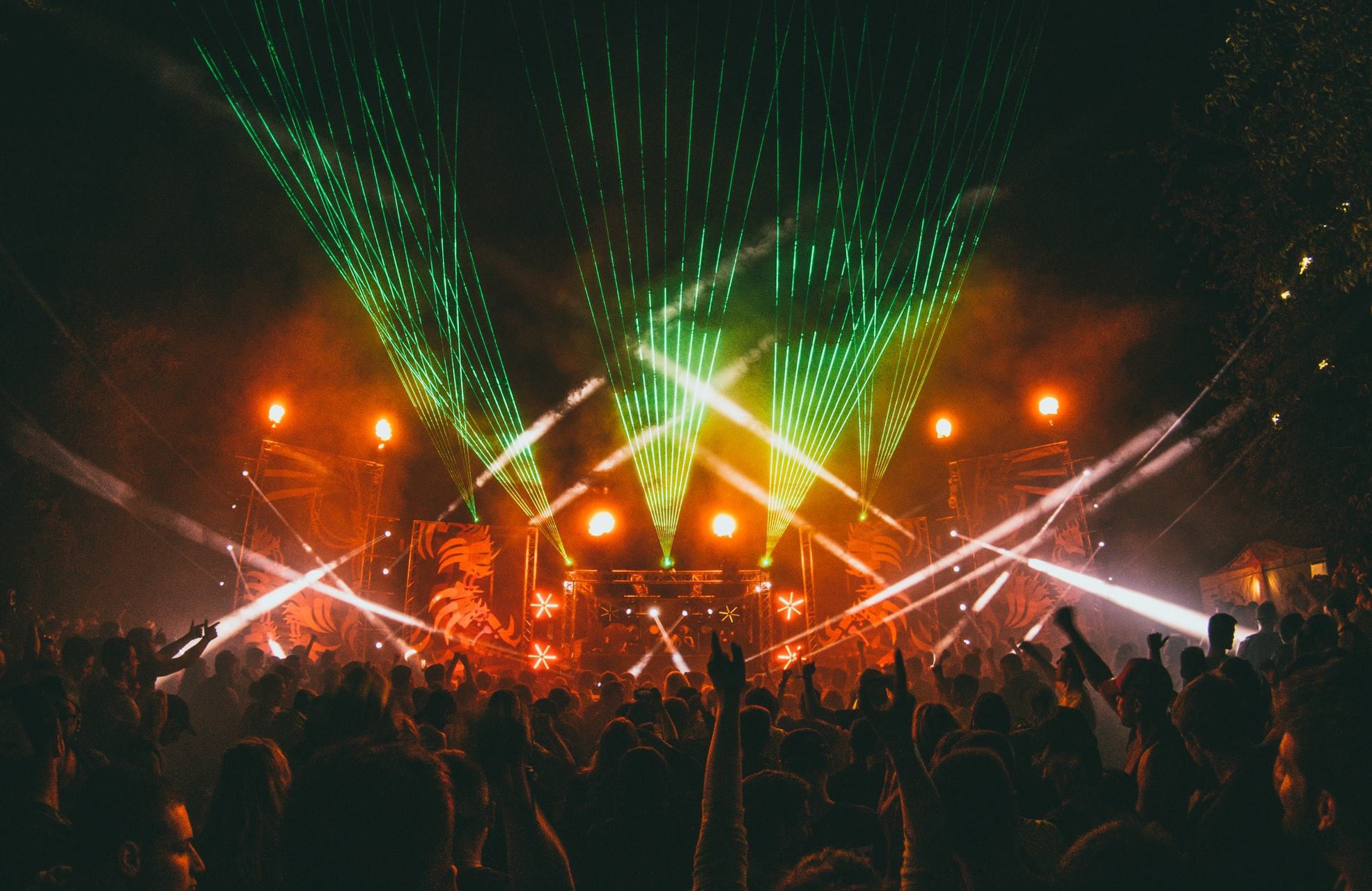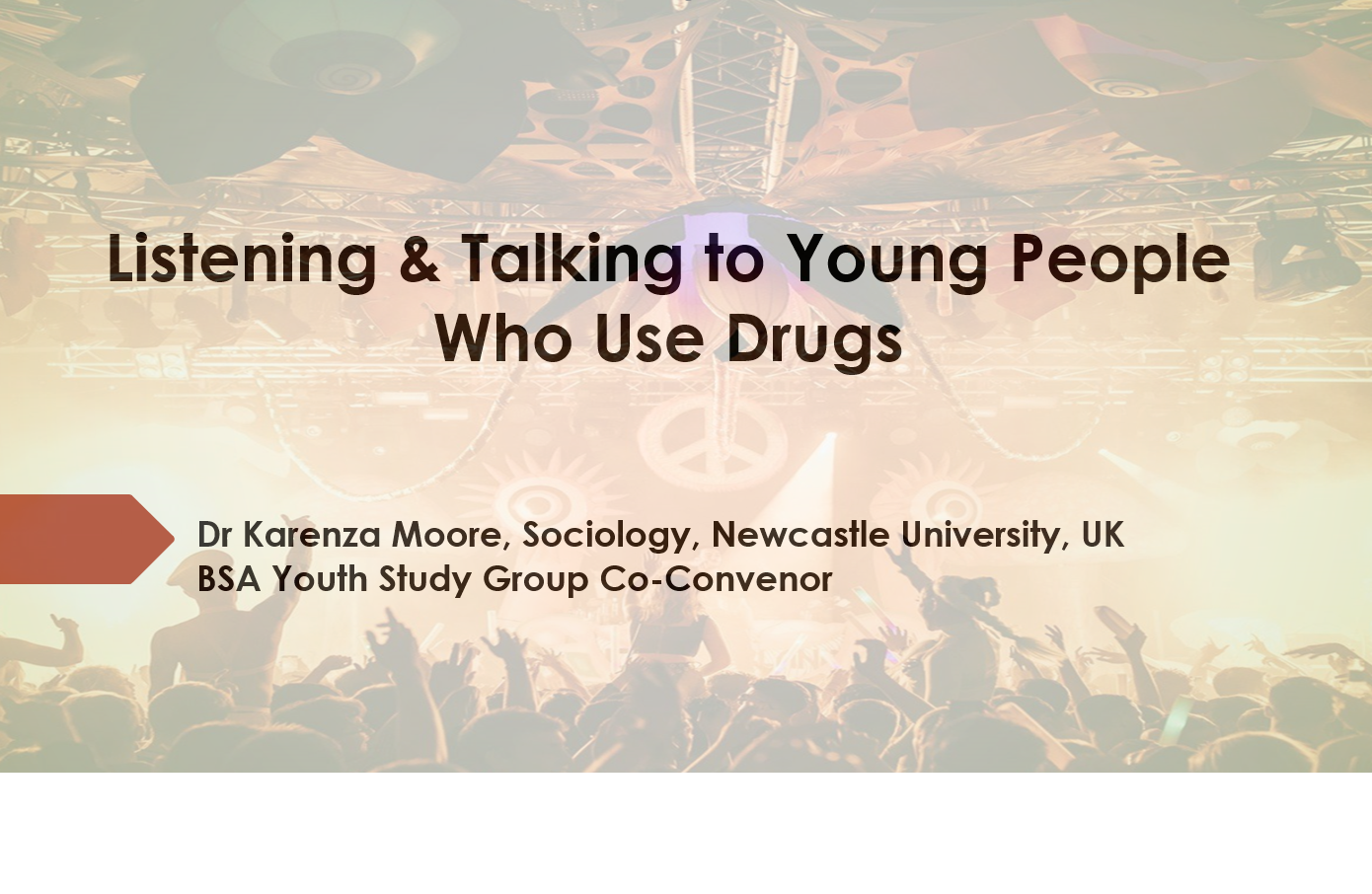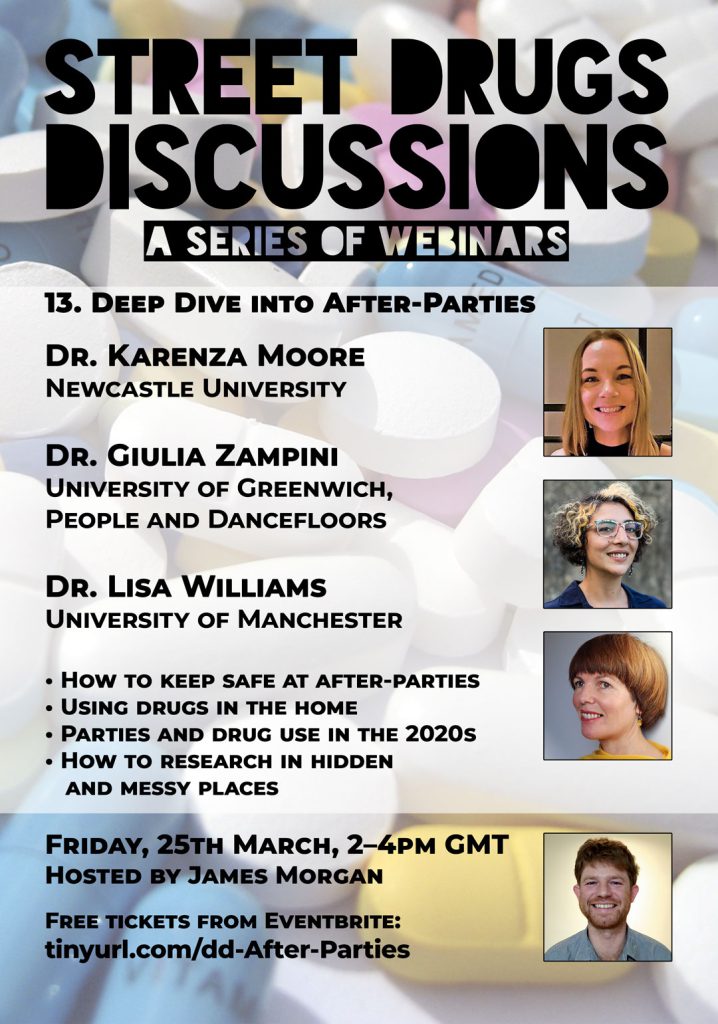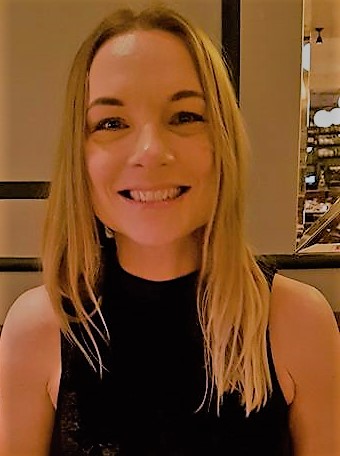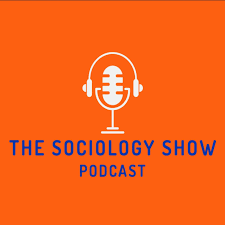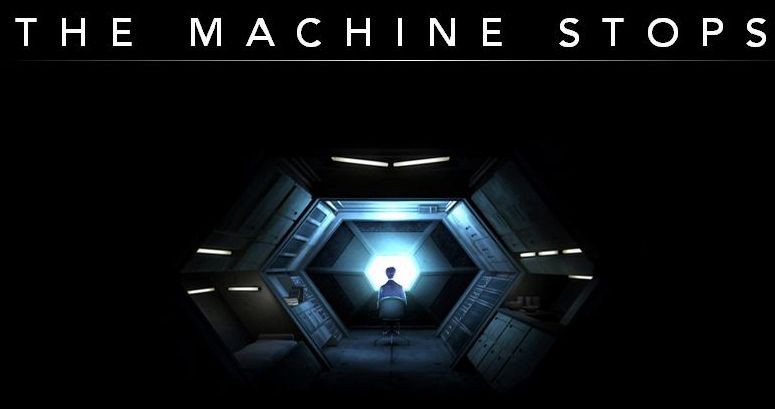The Safer Partying survey is now closed
Safer Partying Ethics Documents
Brief project description
Exciting news about my research on drug use at parties at home! Recently I received funding from the QR Policy Fund for a brief policy-orientated research project on encouraging and supporting safer partying among young adults. As you will know I have long been thinking about partying ‘at home’ in domestic/private settings, with a particular interest in after-parties, a profoundly under-researched aspect of dance music cultures. I am very excited to be working on this. Watch this space for forthcoming events and outputs!
Safer Partying is a timely and significant study on ‘recreational’ drug use in leisure settings. It will produce and translate knowledge on young adult’s substance use at parties in private/domestic settings to policymakers, harm reduction and drug policy organisations, and party-goers themselves.
Project information
Safer Partying is a multi-method research and policy study that aims to illuminate substance use practices, meanings and motivations among young adults within ‘private’ or domestic ‘hidden’ spaces. It is timely given the prominent focus on recreational drug use in leisure settings in the recent 2021 UK Drug Strategy, coupled with the fact that the pandemic has reduced young people’s engagement with the night-time economy (NTE) and increased the use of private/domestic spaces to party. The pandemic has also reduced access to safe spaces for leisure for those experiencing intersections of multiple disadvantage (Woodrow and Moore 2021, Moore et al 2021).
Safer Partying will build a much-needed evidence base and expert network around substance use upon which public health and criminal justice policy responses can be developed. The focus is on translating findings on young adult’s alcohol and ‘recreational’ drug use in private/domestic settings to key stakeholders (local and national policymakers, harm reduction and drug policy organisations, and young adults). Currently, scholarly and policy attention in this area has focused on the NTE and music festivals, resulting in a knowledge gap in young adult’s substance use at parties in private/domestic spaces; including the longstanding practice within dance music cultures of ‘after-partying’, the continuation of substance use in private/domestic spaces after a main social event such as a club night or festival.
The project will work at both a local and national level. Research activities include focus groups with young adults in Manchester, Newcastle and Edinburgh; expert interviews with individuals at a range of organisations concerned with youth leisure and the health/wellbeing of young adults more generally; and a nationwide online targeted population survey on partying practices, including substance use. Project partners include Professor Rob Ralphs, Director of Greater Manchester: Testing and Research on Emergent and New Drugs (GMTRENDs) for Greater Manchester Combined Authority (GMCA) and Kira Weir, Nightlife and Harm Reduction Co-ordinator of Crew 2000, a Scottish drug and alcohol charity based in Edinburgh.
If you would like to be involved, please email me at karenza.moore@newcastle.ac.uk


